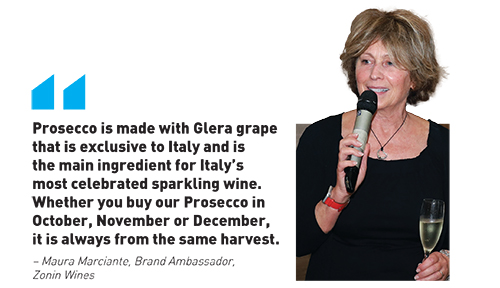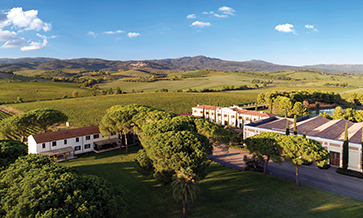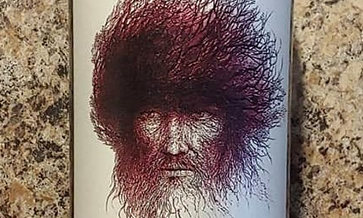Award-winning Italian winemaker Zonin has a reputation for excellence and reliability, thanks to the high quality of its wines, continuous research and the selection of the best grapes. Roy Thomas caught up with Maura Marciante, Brand Ambassador of Zonin Wines, a certified sommelier from the Italian Association of Sommeliers, and a renowned global industry educator, in Bengaluru recently. Excerpts from the interview:
Zonin is a leading Italian brand that has started making inroads into India. Could you tell us something about the company and what goes into making Zonin what it is?
Zonin is a family name and, currently, the seventh generation that runs the company. The company was founded 200 years ago and is, today, one of the largest Italian private wine companies in Italy. Our production is carried out in nine wineries spread across the country.
Our land holdings total 4,000 acres of which we have 1,600 acres planted with vines. To give you an idea of the scale of our holdings, in a large country like India your wine is grown in approximately 2,500 hectares.
We have properties in the United States, in Virginia, on the East Coast. Zonin has an Italian winemaker, Lukapaskeena, who has been there for 40 years already. The wines have received many awards and he has been nominated Winemaker of the Year! We have planted Italian varietals there, including the Piedmont.
Zonin owns some very famous labels. Could you tell us something about these brands and what are they known for?
We own land in the seven most renowned wine regions of Italy – Veneto, Fruili, Tuscana, Lombardy, Sicily, Puglia and Piedmont – which is the strength of Zonin. So, if our customer wants wines from Sicily they don’t have to look for different suppliers: they just come to us!
We are among the biggest producers of Prosecco which is our flagship wine. Prosecco has boomed in recent years and, in Italy, it is very popular and our sales in the United States are amazing. We sell the brand in 140 countries around the world. Almost 80% of our sales are for export and the rest is domestic.
We are among the biggest producers of Pinot Grigio. We have a property in Tuscany, and Chianti is probably our second-best-selling wine. In Piedmont, we are famous for Moscato because we are the largest vineyard for Moscato.
In America, in Australia, in Korea – and I hope also in India soon! – our Moscato is very popular. Moscato is a sweet wine and, in many countries, they love this sweet taste that matches also with regular food and dessert.
What makes Zonin’s Prosecco so special?
Prosecco is made with Glera grape that is exclusive to Italy and is the main ingredient for Italy’s most celebrated sparkling wine. It’s a green-skinned variety that thrives in the cooler conditions in the north-east of the country, particularly across the regions of Veneto and Friuli.
By law, you must use at least 85% of the grape but we use 100% Glera grape. Prosecco is a sparkling wine and its main characteristics are its freshness, fragrance and fruitiness. The harvest is usually in September and, usually, all the producers produce Prosecco in the same month.
The wine is produced using the Charmat method. This is a sparkling wine-making process that traps bubbles in wine via carbonation in large steel tanks. So whether you buy Prosecco in October, November or December, it is always from the same harvest.
In our case, we make Prosecco every single day. This is very expensive because after the harvest we press the grapes and we keep the quid in huge stainless steel tanks at zero degrees Centigrade. In this way, the characteristic of the liquid remains unchanged.
The Charmat method is very fast and quick. So our prosecco label will probably show that it was produced maybe just a month before because that is the time for it to reach the table/ bar in India.
Could you explain Italy’s unique classification system for wines?
In Italy there are different categories of wines. DOCG (Denominazione di Origine Controllata e Garantita) is the highest quality level, while DOCs (Denominazione di Origine Controllata) have variable qualities. Most wines fall into the DOC classification.
We have also the IGT (Indicazione Geografica Tipica), which is a “Typical Geographical Indication”. Created after the inception of the DOC and DOCG, IGT was established for winemakers who fell outside of the requirements of DOC and DOCG, but were still making notable wines by way of consistency and quality.
Please do not think that IGT means lower quality because the most famous wines in Italy are IGT wines. So, even if in the pyramid the IGT is lower, it doesn’t mean the quality is. Under DOCG, it doesn’t mean that the wines are the best. It just means that there is a guarantee on the production.
What is your strategy for India?
We have worked with Aspri Spirits from 2008 and, over the years, the sales have grown. For us it is important to meet the relevant audience. For instance, today we organised some seminars to spread the information about how we make our wines.
Very simple, not complicated; but it explains with who we are and what we do. I know in India the consumption of wine is 1% compared to all the drinks. The problem is the high taxation.
India is a very price-conscious market. It has signed a Free Trade Agreement with Australia that will allow budget wines into the country. Would you have wines that match this price range?
We have all the range, of course, from entry level up to expensive ones. But when you come across a wine that is being sold for, say 2 Euros, you have to ask how. The bottle itself costs 1 Euro; the label and the back label cost another 1 Euro; and then there is the cork, the bottling, packing and shipping. So when you come across wines that are marked too low, be careful!
70% of the wines consumed in the country are Indian brands. It is said that the best strategy for India is to work with Indian growers rather than compete with them. If you work together to promote wines, you can also have your share of the pie. Do you agree with that?
I agree. We did a partnership with a Chilean company, for instance, and we brought our knowhow there. The vineyards are not our vineyards, but we sent our technologies to show that Chilean-made wine that we still sell is from the Chilean terroir but with our Italian knowledge. It’s important to share knowledge and knowhow. I’m very open to these kinds of exchanges.
Have you tasted any Indian wines? What is your opinion on the quality?
I have never visited the vineyards or wineries here, but I have tasted Fratelli. I like the style – of course, it’s different. But I love all wines because you must respect the work of the winemakers. If they work well, I think they have good results anyway.














